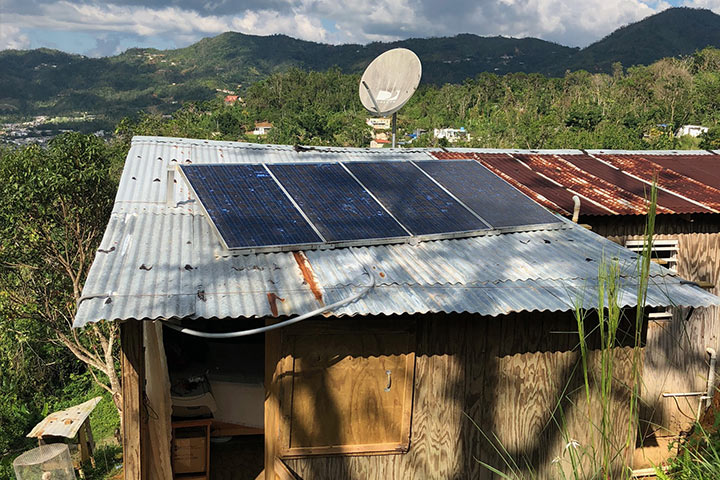Reimagining Puerto Rico’s Energy and Food Systems Through Community Engagement and Industrial Symbiosis
Reimagining Puerto Rico’s Energy and Food Systems Through Community Engagement and Industrial Symbiosis
Reimagining Puerto Rico’s Energy and Food Systems Through Community Engagement and Industrial Symbiosis
Program: Emerging Opportunities Transformation Grants
All Emerging Opportunities Transformation Grants projects »

Project Team
Ivette Perfecto - U-M School for Environment and Sustainability (SEAS)
Jose Alfaro - SEAS
John Vandermeer - U-M College for Literature, Science & Arts
Mariangie Ramos - University of Puerto Rico-Utuado (UPR-Utuado)
Olgaly Ramos - UPR-Utuado
Javier Lugo - UPR-Utuado
Gerson Beauchamp - University of Puerto Rico-Mayaguez (UPR-Mayaguez)
Lorenzo Saleceti-Piazza - UPR-Mayaguez
Yanira Seanchez de León - UPR-Mayaguez
Arturo Massol - Casa Pueblo
Katia Aviles - Organización Boricuá
Project Summary
There is an urgent need to develop resilient energy and food systems especially in areas vulnerable to the consequences of climate change. In September 21, 2017 Hurricane Maria devastated Puerto Rico. Among the most affected sectors were agriculture and energy. Five months after the hurricane left all the inhabitants without electricity, more than 400,000 residents, mostly in the central mountainous region, remain without electricity. The damage to agriculture and agricultural infrastructure has been estimated to be more than $2 billions.
To address these challenges in the future, this project seeks to stimulate a new path for the sustainable development of Puerto Rico’s food and energy sector. The goal is to integrate these two sectors through an industrial symbiosis project with strong community participation.
Industrial symbiosis are systems where seemingly unrelated production units are collocated to take advantage of underused material and energy flows increasing sustainability and efficiency. The project will enhance sustainability and resilience for agricultural communities by closing the loops of effluents and by-products between agro-ecological farms and gasification for electricity production. The gasification process will use farm residues to produce syngas and electricity while the effluent biochar will be returned to the environment for soil enhancement.
The project will be developed in collaboration with a community organization with a track record in promoting sustainable development in Puerto Rico, an organization of agroecological farmers, and two universities in Puerto Rico with programs in sustainable agriculture and energy, and it will include opportunities for engaged learning for university students from Michigan and Puerto Rico.
The main activities include: 1) the participatory design and establishment of four hybrid solar/biomass gasification micro-grid systems; 2) investigations related to the sustainability of the system, including using residues to create biochar and its use and impacts on soil properties and carbon storage; and 3) workshops to train community members on the construction of gasifiers and the production and use of biochar. Project outputs will be generated in collaboration with the stakeholders and will be designed in a way that could be easily replicated in other communities in Puerto Rico and the Caribbean.
Through these efforts, the project aims to develop energy independence and community capacity within underserved rural communities and farms in Puerto Rico, improve understanding around energy consumption that can inform further energy independence projects, and leverage additional external funding to expand the project.
News & Resources
- Renewable energy for Puerto Rico, Science Editoria co-authored by Arturo Massoll, the team's partner at Casa Pueblo
- Puerto Rico: Networking to Power a Grid, Global Michigan multimedia feature, available in English and Spanish
- As Electricity Returns to Puerto Rico, Its People Want More Power, Scientific American, July 10, 2018
- U-M Graham Institute grants target sustainability challenges in Puerto Rico, Michigan, U-M News, May 21, 2018
This project received a $200,000 Transformation Grant in 2018.